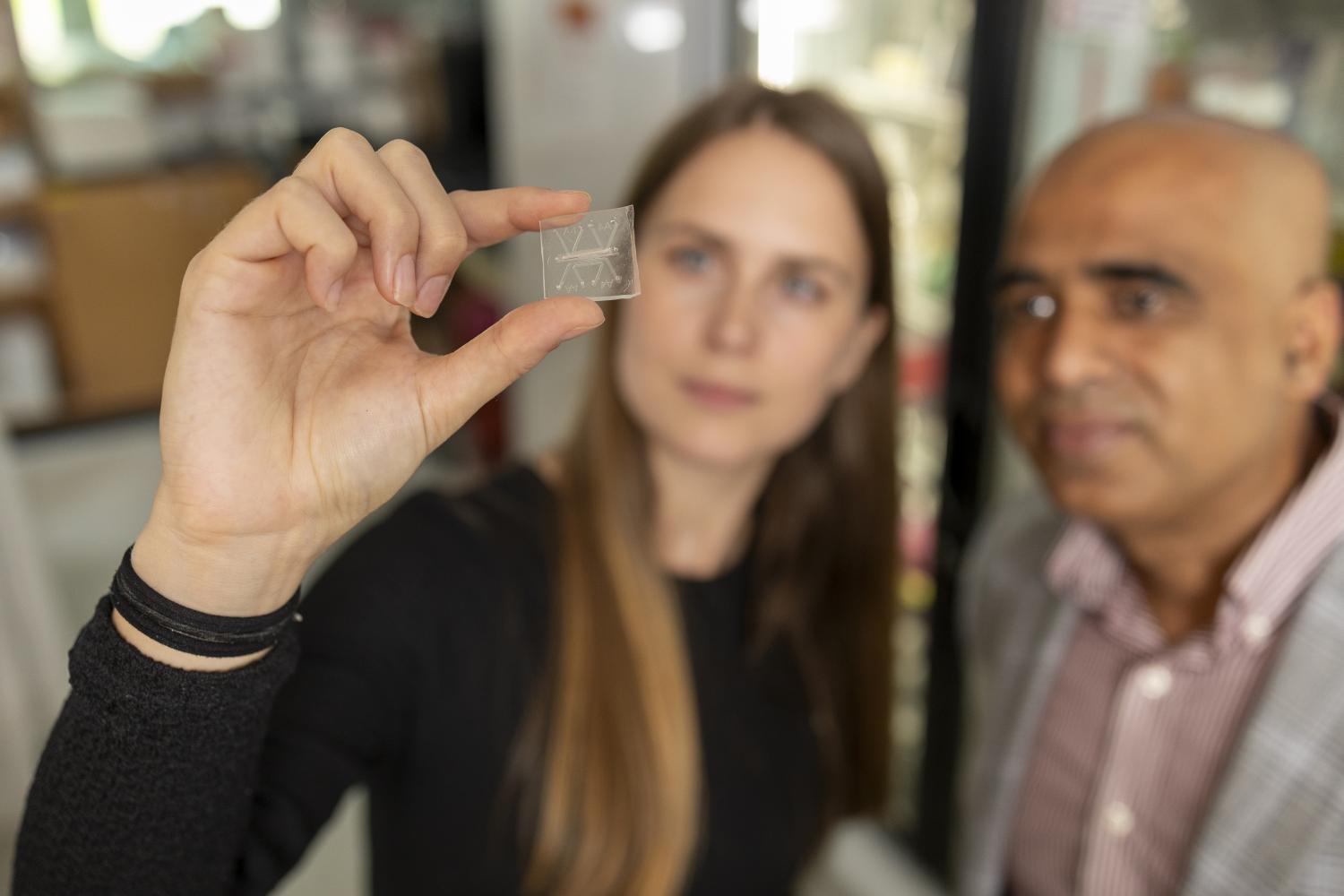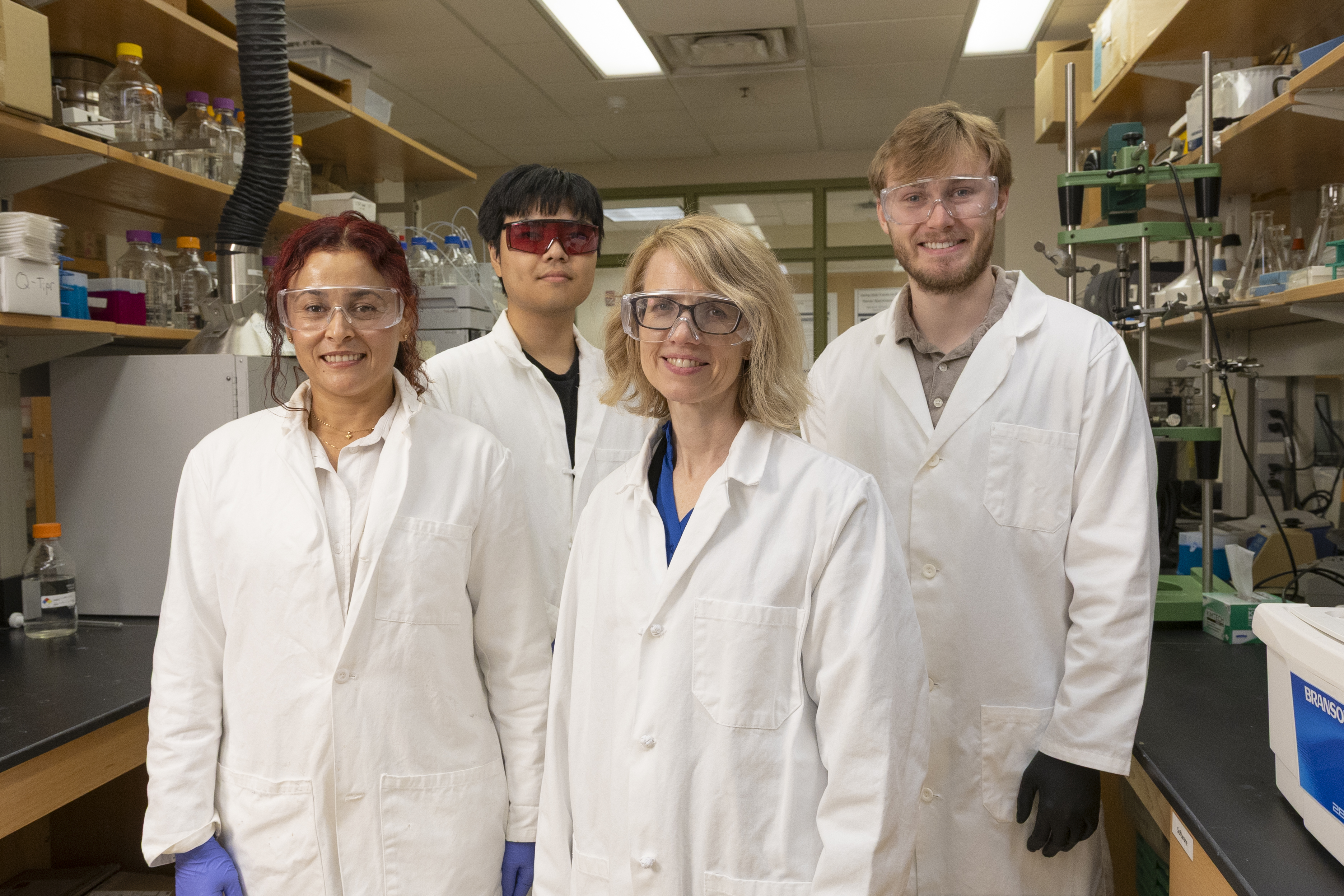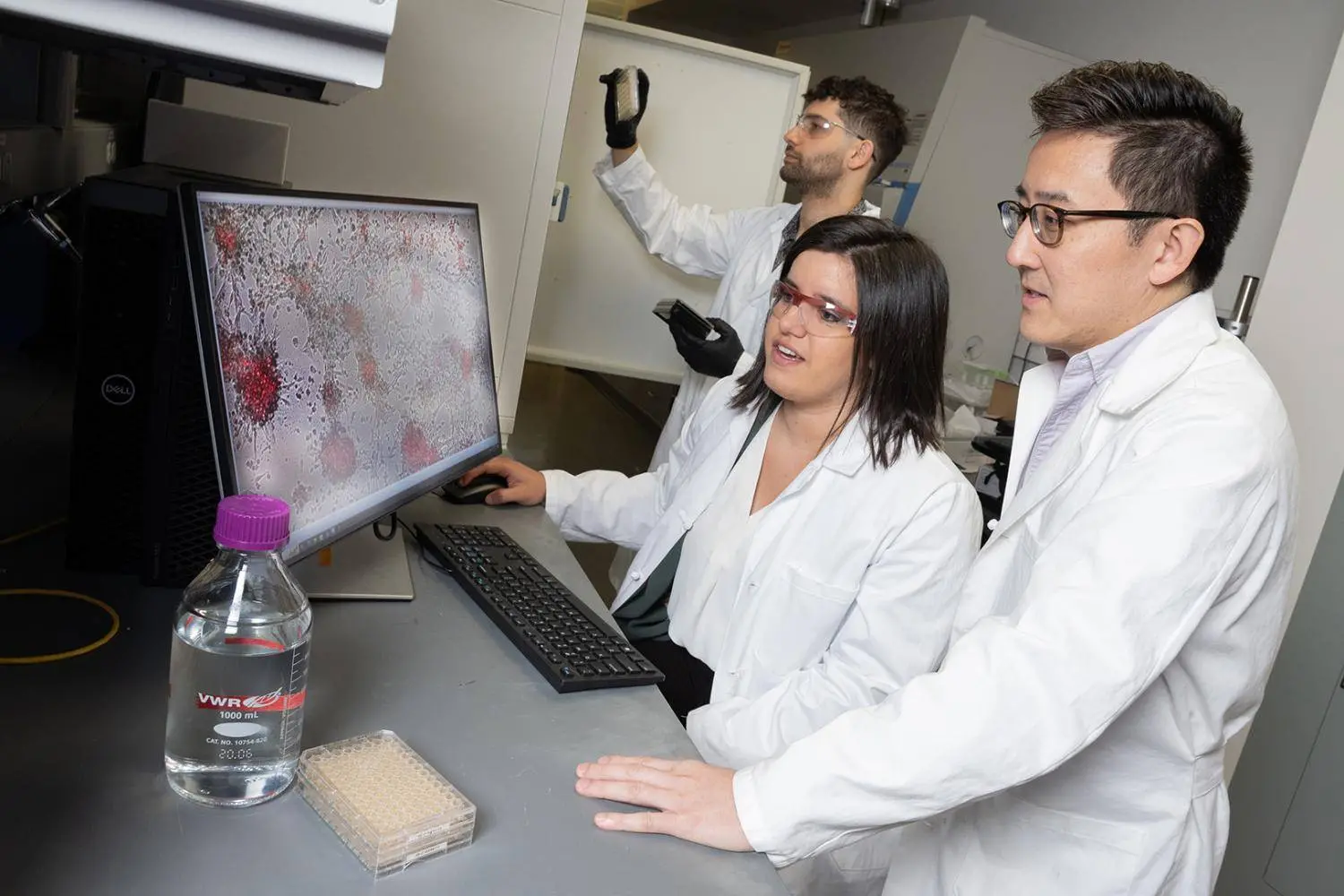Oct. 06, 2025
Akanksha Menon leads the “Multifunctional materials for energy-efficient buildings: from homes to data centers” research initiative for the Institute for Matter and Systems at Georgia Tech. Her research in this role focuses on advancing the efficiency and sustainability of buildings (from homes to data centers) using a materials-to-systems approach. Menon is an assistant professor in the George W. Woodruff School of Mechanical Engineering.
In this brief Q&A, Menon discusses her research focus, how it relates to Matter and System’s core research focuses, and the national impact of this initiative.
What is your field of expertise and at what point in your life did you first become interested in this area?
My expertise is in energy systems and thermal science/engineering, and I direct the Water-Energy Research Lab (WERL) at Georgia Tech. In high school I read “Storms of my Grandchildren” by climate scientist James Hansen and became aware of global warming and how we are contributing to climate change. That got me interested in the field of energy systems and sustainability — in undergrad I realized that thermodynamics forms the basis of how we use/convert energy, and that heat is the most dominant end-use of energy. Since then, I have focused my research on waste heat recovery, energy storage, and advanced separations that leverage thermally responsive materials for clean energy and water.
What questions or challenges sparked your current research?
I am passionate about developing technology solutions to global grand challenges, and I believe that clean energy and clean water are the two critical resources that can unlock everything else. The key challenge lies in making these technologies efficient and low-cost, and this is where functional materials and novel phase transitions can play an important role.
Matter and systems refer to the transformational technological and societal systems that arise from the convergence of innovative materials, devices, and processes. Why is your initiative important to the development of the IMS research strategy?
My initiative focuses on the built environment, i.e., buildings ranging from homes to data centers, and this is one of the four IMS research areas. Buildings not only consume energy and water but also must maintain thermal comfort for humans and machines (servers). This requires an integrated approach of designing multifunctional materials and hybrid systems, as well as evaluating their performance in relevant operating environments. This understanding can transform buildings into dynamic systems with optimal energy-water use.
What are the broader global and social benefits of the research you and your team conduct?
This research contributes directly to the sustainability, efficiency, and resiliency of buildings. This is especially timely given the boom of data centers all around us that will significantly impact our energy and water resources.
What are your plans for engaging a wider Georgia Tech faculty pool with the Institute for Matter and Systems research?
This research requires interdisciplinary expertise – from materials scientists and thermal engineers to architects and experts in manufacturing and life cycle/technoeconomic analysis. To bring these different faculty together, I will organize a series of lunch-and-learn sessions and brainstorming meetings. Given the energy and sustainability themes, I also plan to engage with SEI and BBISS to potentially grow this initiative into a program or center in the future. The growth of data centers and energy manufacturing in Georgia, as well as our unique water resources in the Southeast make this the right time and place to pursue this initiative.
News Contact
Amelia Neumeister | Research Communications Program Manager
The Institute for Matter and Systems




